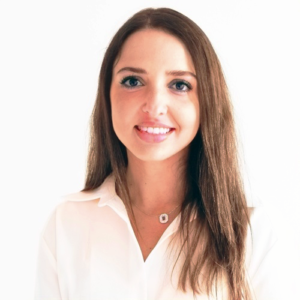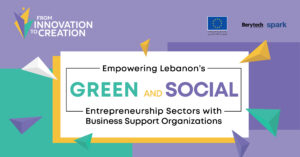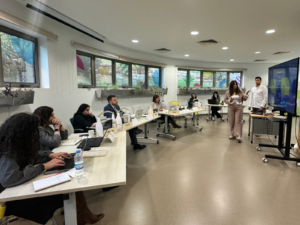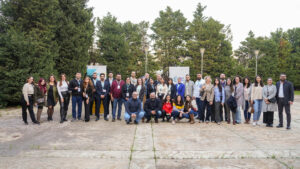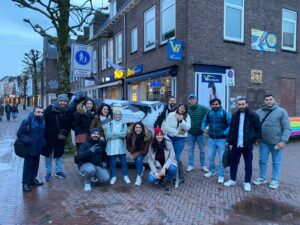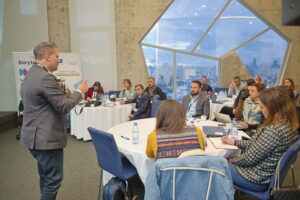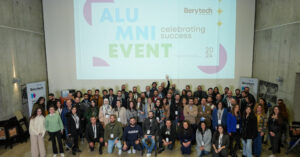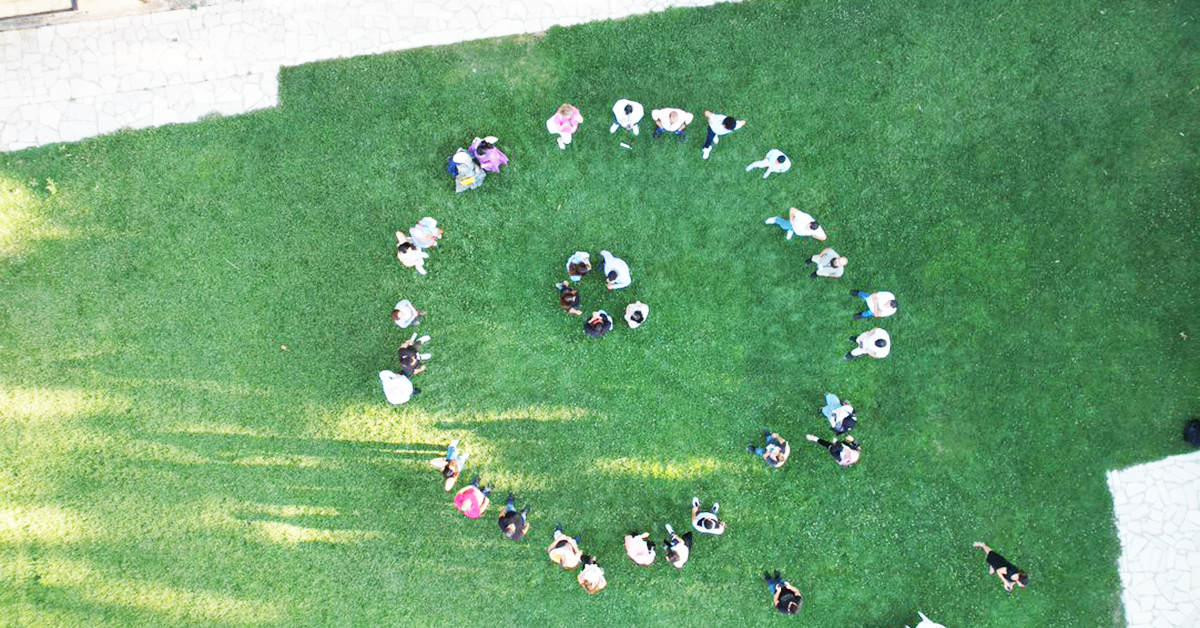 Berytech organized the NEX-LABS Summer School, a regional entrepreneurship 5-day intensive program aiming to allow entrepreneurs and researchers to turn their innovations in the Water, Energy and Food (WEF) Nexus sector into potential startups and explore commercialization opportunities.
Berytech organized the NEX-LABS Summer School, a regional entrepreneurship 5-day intensive program aiming to allow entrepreneurs and researchers to turn their innovations in the Water, Energy and Food (WEF) Nexus sector into potential startups and explore commercialization opportunities.
The summer school that took place in the Lebanese Bekaa region, at Massabki Hotel, Chtaura from the 27th of June to the 1st of July provided new business perspectives to NEXUS innovators, created potential collaborations across borders in the Mediterranean, and helped the entrepreneurs develop their entrepreneurial mindset and relevant skills to successfully launch and grow their business.
The program was attended by 14 teams, out of which six were from Lebanon, three from Egypt, two from Jordan, one from Tunisia, one from Cyprus, and one team from Spain.
Building NEXUS Businesses
On the first day of the summer school, participants attended a team-building activity with expert Hiba Makarem, Head of Client Relations at TRACE. They participated in ice-breaking games to deploy their communication and strategizing skills and enhance their team spirit.
They then got introduced to expert Dr. Mohab Anis, founder, and CEO of Innovety based in Egypt, who followed their journeys throughout the bootcamp. In his first session, he introduced them to the Water-Energy Food-NEXUS world, particularly in the MENA region, going through its components, objectives and approaches, challenges, stakeholders, and most importantly the cruciality of making a change in the region.
Before wrapping up the day, the participants met Khaled Alababas, the founder of SmartLand, a Lebanese startup aiming at supporting farmers and increasing their yield using an efficient irrigation and fertigation system. Khaled emphasized the challenges he faced throughout the creation of his business, but also the importance of technology integration in the farming sector.
On the second day, the entrepreneurs dived more into the innovation fundamentals while considering new trends and the COVID-19 pandemic that affected all sectors around the world.
The participants took part in an interesting intervention by Water sector advisor and consultant Jawad Taher who highlighted the current water situation in Lebanon and the Mediterranean, the transformation and conservation of water, and why it is essential to look at this resource from an integrated perspective. He shared his insights and know-how by giving practical examples of Water Energy Food NEXUS ideas and businesses.
Startups also had tailored working sessions with Dr. Anis where they applied what they learned to strengthen their business concepts and models.
On the third day, the business model creation was finalized, and it tackled the identification of new revenue streams and partners across the value chain and the preliminary prioritization of business concepts according to attractiveness and fit.
Participants then visited Domaine de Taanayel, one of the few facilities in Lebanon that adopt the water – energy – food NEXUS model. Throughout the entire Domaine de Taaneyel, solutions are implemented to serve the optimization of energy and water consumption, reduce carbon footprint, and enhance farming land to eradicate food insecurity and waste whilst empowering farmers by improving the best practices and decision-making techniques.
The fourth day started with a refreshing session of laughter yoga with Berytech Human Resources Manager, Ms. Rim Tannir. This day was all about intellectual property rights and Go2Market strategies.
The workshop was facilitated by Mohamed Kash who is an IP expert and senior consultant at Innovety. He first gave an introduction about IP (patents and utility models) and talked about patent search and finding potential customers in the patent database and patent search. He then gave a complete session about the Go2Market strategy and tackled 4 essential pillars: the lean methodology, the validation tool, the minimum viable product, and customer development.
Finally, an intervention by Leyla Zeidan from Compost Baladi concluded the day. Compost Baladi is a rising Lebanese startup that is converting bio-waste into a bio-resource for regenerative agriculture. Leyla spoke about the journey of this startup in Lebanon, its operations, the challenges it faced in general and within the context of the economic crisis, and future considerations and projections.
The fifth day was the Jury and Deliberation Day where Dr. Anis concluded the bootcamp with a session on financial projections and tackled 4 main topics: identifying new revenue streams and partners across your value chain, preliminary prioritization of business concepts according to attractiveness and fit, introduction to financial projections and estimation, and valuation methods (Cost-based methods, Market-based methods, Income-based methods)
6 teams out of 14 go to the NEXUS Innovation Week
14 teams pitched in front of Dr. Maya Kharrat, Director at Saint-Joseph University, Ramy Boujawdeh, Chief Operating Officer at Berytech, and Jawad Taher, Water Sector Advisor & Consultant.
Six teams were selected to participate in the NEXUS Innovation Week taking place in Beirut during the coming October.
The winning teams are The Bone Guy, Takatkom and Drive Green from Lebanon, ChitoTech and Recyclizer from Egypt, and RUMTech from Jordan.
About NEX-LABS
The EU-Funded NEXUS-DRIVEN OPEN LABS FOR COMPETITIVE AND INCLUSIVE GROWTH IN THE MEDITERRANEAN (NEX-LABS) project aims to support the implementation of clean technologies for the sustainable and resilient growth of agri-food sector production based on more efficient use of energy (renewable/solar solutions) and water (wastewater treatment, water harvesting or reuse solutions) in Mediterranean Partner Countries region thanks to the contribution of ICT such as blockchain technology, Internet of Things (IoT), Artificial Intelligence (AI), Machine Learning and Big Data.
NEX-LABS targeted territories, characterized by water scarcity and both irregular rainfall and population distribution, reflect agriculture as the largest user of water (70-90%) while future global warming projections (≈2ºC) are expected to cause a decrease in summer precipitation (-10/-30%), threatening water availability (-2/-15%) and agricultural productivity (-12/-40%). The latent conflict between energy efficiency (≈60%) and water production is also increasing the energy footprint/m3 of water used to produce food. The predicted shortfalls in Water/Energy/Food (WEF) require a NEXUS approach, which means integrated management and governance of these natural resources.
NEX-LABs project includes a partnership of 11 institutions from seven different countries across the Mediterranean to tackle the challenges of a competitive and inclusive growth thanks to a nexus driven approach. This project is funded by the EU under the ENI CBC Med Programme. With a total budget of €3.450.984,97, the project has received a contribution of € 3.105.866,47 (90%).



